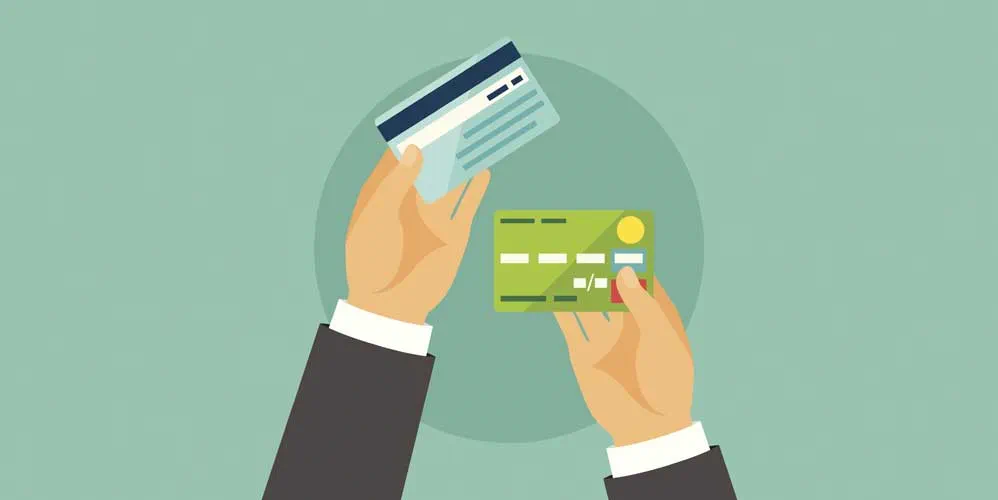Credit cards and debit cards are both useful tools that allow you to make purchases without carrying cash. However, they work differently, and choosing between them can have an impact on your finances. In this article, we’ll discuss the benefits and drawbacks of each and help you decide when to use a credit card vs. debit card.
What Is a Credit Card?
A credit card is a payment card that allows you to borrow money from a bank or credit card company to make purchases. When you use a credit card, you’re essentially taking out a loan that you’ll need to repay later, usually with interest.
Credit cards come with a credit limit, which is the maximum amount of money you can borrow. Your credit limit is determined by your credit score, income, and other factors. If you spend up to your credit limit and don’t pay off the balance in full, you’ll be charged interest on the remaining balance.
What Is a Debit Card?
A debit card, on the other hand, is linked to your bank account and allows you to spend money that you already have. When you use a debit card, the funds are immediately deducted from your account, so you can’t spend more than you have. Debit cards are often used for everyday purchases like groceries, gas, and other essentials.
Benefits of Using a Credit Card
– Build Credit
One of the biggest advantages of using a credit card is that it can help you build your credit score. By using your credit card responsibly and paying off the balance in full each month, you can demonstrate to lenders that you’re a reliable borrower. This can make it easier to qualify for loans, mortgages, and other types of credit in the future.
– Rewards Programs
Many credit cards come with rewards programs that allow you to earn points, cash back, or other perks for using your card. These rewards can add up quickly and can be a great way to save money on everyday expenses.
– Consumer Protection
When you use a credit card, you’re protected by federal law from fraudulent charges or unauthorized purchases. If you notice a suspicious charge on your credit card statement, you can dispute it and potentially get your money back.
Benefits of Using a Debit Card
– No Debt
Perhaps the biggest advantage of using a debit card is that you can’t go into debt. Since you’re only spending money that you already have, you don’t have to worry about paying interest or getting into financial trouble.
– No Annual Fees
Most debit cards don’t come with annual fees, which can save you money over time. With a credit card, you may have to pay an annual fee to access certain perks or rewards programs.
– Easier Budgeting
Since you can only spend money that you have in your account, it can be easier to budget and manage your finances with a debit card. You won’t have to worry about overspending or racking up debt, which can be a relief for those who struggle with impulse purchases.
When to Use a Credit Card
– Large Purchases
If you’re making a large purchase, like a new appliance or a vacation, a credit card may be a better option. This is because credit cards often come with higher credit limits than debit cards, which means you’ll be able to make the purchase without worrying about maxing out your account.
– Building Credit
If you’re trying to build your credit score, using a credit card responsibly can be a smart move. By making small purchases and paying off the balance in full each month, you can demonstrate to lenders that you’re a reliable borrower.
– Rewards Programs
If you’re looking to earn rewards, using a credit card with a rewards program can be a great way to save money on everyday purchases. Many credit cards offer cash back, points, or miles that you can redeem for travel, merchandise, or statement credits. Just be sure to choose a rewards program that matches your spending habits, so you can maximize your rewards.
– Protection
Credit cards also offer greater protection than debit cards when it comes to fraudulent charges or unauthorized purchases. If you notice a suspicious charge on your credit card statement, you can dispute it and potentially get your money back. Additionally, many credit cards come with extended warranties, purchase protection, and other benefits that can give you added peace of mind.
When to Use a Debit Card
– Everyday Purchases
For everyday purchases like groceries, gas, and other essentials, a debit card is often the best choice. Since you’re only spending money that you have, you won’t have to worry about paying interest or going into debt.
– Budgeting
If you’re trying to stick to a budget or manage your finances, a debit card can be a useful tool. Since you can only spend what you have in your account, you’ll be forced to stay within your budget and avoid overspending.
– ATM Withdrawals
If you need to withdraw cash, a debit card is the way to go. While you can use a credit card to get a cash advance, you’ll typically pay high fees and interest rates. With a debit card, you can withdraw cash from an ATM for free or for a small fee.
Conclusion
Choosing between a credit card and a debit card depends on your personal financial goals and spending habits. If you’re looking to build credit, earn rewards, or make large purchases, a credit card may be the best choice. On the other hand, if you’re trying to stick to a budget, avoid debt, or make everyday purchases, a debit card is often the way to go. Whichever option you choose, be sure to use your card responsibly and pay off your balances on time to avoid interest charges and fees.










Leave a Reply